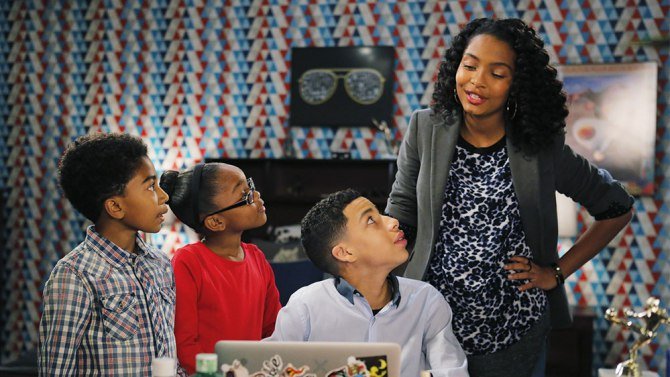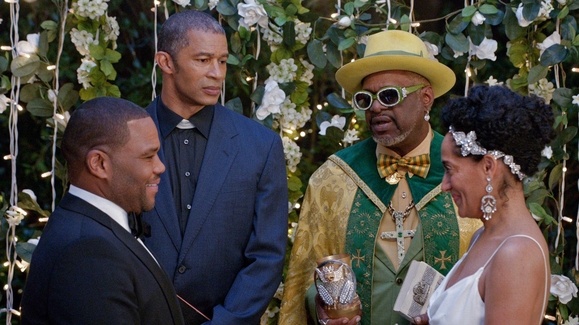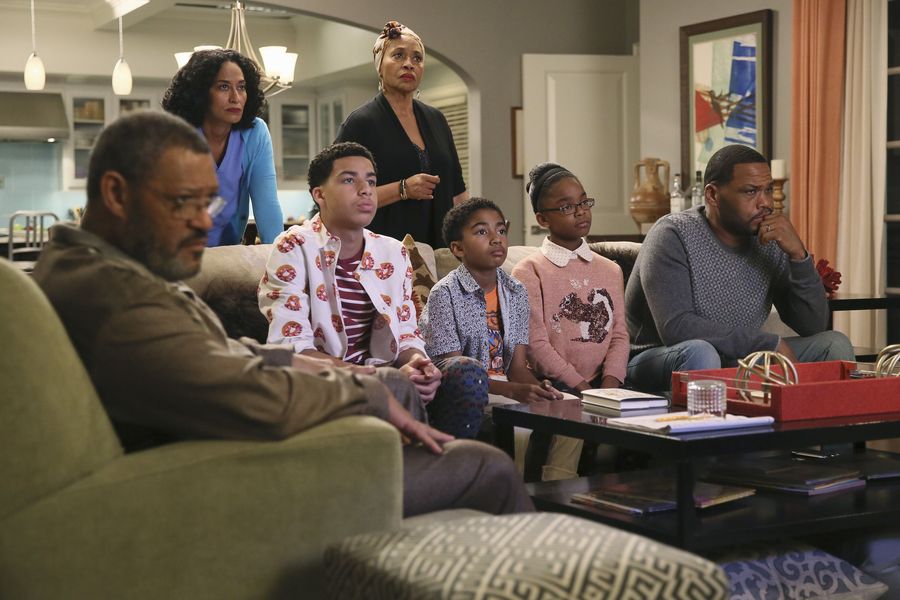Black-ish’s Exploring of The Black Experience and Black “Other” Hooked Me
Black-ish’s Exploring of The Black Experience and Black “Other” Hooked Me
http://blacknerdproblems.com/black-ishs-exploring-of-the-black-experience-and-black-other-hooked-me/
As a Black and Latinx individual being raised in white suburbia, it can be difficult to find representation in mainstream media for your unique experience. You never feel like you are less Black, but apparently everyone tells you that you are. You are reminded everyday that you are a strong Black woman, but loving Fleetwood Mac, The Doors, and Whitney Houston confuses a lot of people who believe what they see on TV as Black. You can imagine my excitement when I heard a show called Blackish was going to be on prime-time television.
Unfortunately for me, Blackish was just that, a good show-ish. The show follows a well-to-do family, the Johnsons, in the suburbs of California (specifically SoCal area) and their lives as a Black family growing in white suburbia. The family consists of mother Rainbow, bi-racial and raised in a hippie household, who prides herself on being a successful doctor; Dre, the “started from the bottom now we’re here” father from Compton, now living in the suburbs working as a marketing agent at a top marketing firm, head of the “urban division” (which they address in the first episode); and their 4 children, who are the subject of Dre’s concern throughout the show that they are indeed not growing up with the necessary Black experience he remembers.
In the first episode, we see Dre worry obsessively that his family is not “Black enough.” Seeing his son enjoy nerdom and his family all around not participating in “traditional Black culture.” By the end of the episode we see Dre dressed in dashiki cloth doing some sort of ritual in the back yard. I was immediately disappointed that I was not going to be able to relate to a show that seemed to be made specifically for me.
Some coercion from my sister, bless her ability of foresight, convinced me to keep watching. As the episodes went on, I realized I was thinking of this in a singular fashion and much too far ahead of the reality of the times. Blackish is a sitcom, like any other sitcom, but it does in fact bring to light the different existences of Black life. It touches on the dichotomy of having to live within white standards but also live with the knowledge of your history and existence as a person of color. Dre is the quintessential epitome of this dichotomy.
Dre is a man who grew up in “the hood”, Compton to be exact. He loves sneakers, looking fresh, and trying to be authentic and often wrestles with this in his adult life in relation to his upbringing. The presence of his parents, Pops (Laurence Fishburne), and his mother, Ruby (Jenifer Lewis), (both of whom do a superb job – of course) play a big role in the classic nature vs. nurture element of the show. What we see through the show is Dre’s ideas of authenticity in Blackness are very much topical and he begins to learn from his family the nuances of being Black. From his love for his wife and his struggle to understand his son Junior, to his adoration for his oldest daughter Zoe, the show truly brings in a narrative we do not see in prime time.
I ended up loving the show, season three is much better than the rest, but I watched the show touch on so many issues that affect people of color in a witty and also serious fashion. From the antics at Dre’s office and his white co-workers to the way they bring in Rainbow’s family — being mixed while also growing up in an environment based on holistic life and the paths this takes POC folks on. I’m reminded of the episode in which Junior dates a white girl and Rainbow has to wrestle with why this bothers her. In another episode, the youngest son Jack uses the N word in school and the consequences and complicated nature of this, not only for him, but for the word in general, are touched on. I have seen the show address police brutality in a bottle episode, playing out the desires we as people of color feel to come together and stand up for justice, and addressing our feelings of rage and at the same time our fears. There’s an episode that tackles the election and all sides if it, from Trump supporters, to rights to vote, to the long-standing oppression of POC in this nation by our government.
The thing that really brings the show home are the children — they are the device for the inner message of the show and the core family values. Jack and Diane, twins and the youngest of the bunch, are the ying and yang. Diane is smart and cynical, while Jack is funny and loves to entertain. Junior loves Dungeons & Dragons, video games, and, of course, is an avid Lord of the Rings aficionado (aren’t we all!). Then there’s Zoe, a beautiful young woman, who takes after her father in personality and is seen as the popular social media queen.
All of these characters together make up an array of Black “other” life that I could not truly acknowledge at the beginning. Not often do you see a sitcom that is willing to take that step and show you the wide reach of Black culture and Black life.

Of course it is still a sitcom, so we have to sit through the sappy moments, the corny episodes, and the jokes to placate the audience, but that in itself is a privilege. They do bring in some questionable characters, (Raven Simone on a show about Blackness when she claims to not see color? and Chris Brown…) but it really is something to have a sitcom of Black life that isn’t a period piece, isn’t about a hard knock life, or isn’t trying to overcompensate for oppression.
All in all, I was getting ahead of myself. I wanted to see a show that delved deeply into the nuances of Black “other” life or some experience that truly made me feel like my existence was not to be made fun of or ridiculed, a show that stood up for people like me not being called “oreos.” In reality, there is an era emerging in media and entertainment that is providing a pathway for the new narrative — Blackish does this. And Tracee Ellis Ross does the damn thing in this show! #actorgoals!
It is refreshing to see a sitcom in the modern world that addresses the fact that a variety of Blackness even exists at all. Check out the new season of Blackish coming back this Fall.
Are you following Black Nerd Problems on Twitter, Facebook, Tumblr or Google+?





